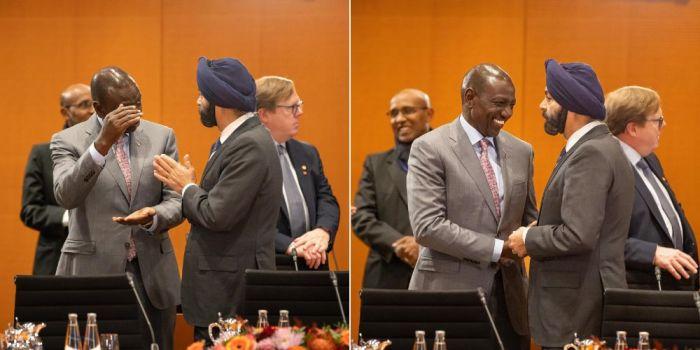World Bank Makes Leadership Change for Kenya as it Fights Criticism Over Skewed Lending Practices
With rising concerns over Kenya’s escalating debt, the World Bank has named Qimiao Fan as the new Country Director for Kenya and three other East African nations.
This appointment comes at a pivotal moment as the lender faces pressure from Kenyans, including lawmakers, who accuse it of irresponsible lending.
Effective September 1, 2024, Fan’s role signifies the World Bank’s effort to stabilize its relationship with Kenya, a nation heavily involved with the lender’s financial operations.
The importance: As Kenya’s largest lender, the World Bank is owed approximately Ksh1.5 trillion, with 36 ongoing projects valued at over Ksh950 billion. The new leadership is viewed as a strategic move to address the increasing skepticism about the lender’s role in Kenya’s economy.
Kenya’s relationship with international lenders has been strained since the rejection of the Finance Bill 2024 by Kenyans, leading the government to announce plans to borrow Ksh1.2 trillion this year.

In-depth: Fan, a veteran development expert with over 35 years of experience, now faces the challenge of managing the World Bank’s intricate relationship with Kenya.
The lender has faced criticism in Kenya, particularly regarding the country’s growing public debt, a topic that has sparked debate among Kenyans and their elected officials.
The recent approval of a Ksh27 billion loan, including a Ksh4.3 billion grant for last-mile electricity connectivity, has intensified scrutiny.
Despite the criticism, the World Bank remains firm in its stance. In a recent interview, the lender vigorously defended its lending practices, refuting claims that it fails to monitor the proper use of its funds in Kenya.
ALSO READ:
- “Two Groups, One Agenda”: Gachagua Accuses Raila of Secret Political Deals
- Exclusive: Ida Odinga’s 75th Birthday Party in Karen (Photos)
- FKF President Discloses Exact Amount Paid to Harambee Stars Players
- Gachagua’s Ally Senator John Methu Admits Ruto Might Win 2027 Elections
- Maraga Explains Why He Hasn’t Campaigned in Kisii Despite 2027 Bid
The bank asserted that its involvement with the Kenyan government includes a comprehensive due diligence process throughout a project’s entire lifecycle, ensuring that funded projects are both viable and aligned with the country’s needs.
“The World Bank and the Government of Kenya engage in a dual due diligence process throughout the entire project lifecycle, from inception to completion,” the lender stated. “This process ensures that projects are robust and effectively address the country’s needs.”
Additionally, the lender emphasized its advisory role in Kenya’s economic policy, recently advising President William Ruto against frequent tax policy changes. While the World Bank’s influence on Kenya’s economic direction is clear, it remains a divisive force among the public.
“If the Government of Kenya fails to meet its obligations under the relevant legal agreement, the World Bank can exercise its remedies, including suspending or canceling funds provided under the financing,” the World Bank stated.
Who is Fan?
Fan is a seasoned development professional with extensive expertise. His background includes leadership roles across East Asia, South Asia, and Europe. His academic credentials, including a PhD in Economics from the University of Birmingham, further enhance his reputation as a key figure in global development.
However, despite his qualifications, Fan’s real challenge lies in managing the delicate balance of public opinion in Kenya. The World Bank’s involvement in Kenya’s electrification program, for example, has had both positive and negative impacts.
While the World Bank-supported Kenya Electricity Expansion Project has significantly increased electricity access—from 25 percent to 75 percent of the population—the program’s implementation has been plagued by issues. An audit revealed delays and the supply of defective equipment, resulting in blackouts that have marred the project’s success.
The audit also noted the program’s positive outcomes, including job creation, the growth of small businesses, and improved security. Nonetheless, delays in project completion have fueled criticism, with none of the project phases finished by April 2022.
This mixed track record highlights the complex challenges Fan will face as he strives to align the World Bank’s development objectives with Kenya’s on-the-ground realities.
World Bank Makes Leadership Change for Kenya as it Fights Criticism Over Skewed Lending Practices
